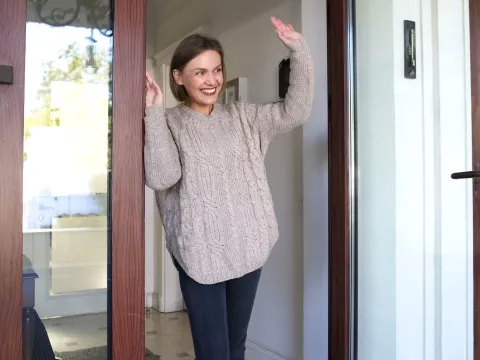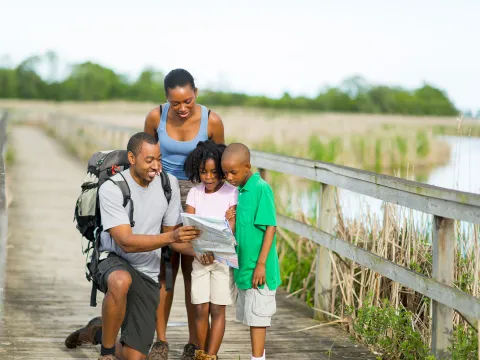- AdventHealth

One resounding message we’ve heard lately is that we’re all in it together. Yet social distancing has many of us feeling very much apart, especially from family and friends. You may be wondering when you’ll finally be able to invite friends over for dinner or resume family celebrations.
We’re all waiting for things to return to normal. But it may take longer for it to happen in some parts of the country than others. You can continue to do your part by following federal and local government guidance on social distancing.
How Social Distancing Is Helping
The Centers for Disease Control and Prevention (CDC) continues to report cases in many states, showing the pandemic is far from over. But the numbers seem to be leveling off. That’s good news, and it’s likely due to social distancing, says the CDC.
Although experts are still learning about coronavirus, they think it spreads mainly through prolonged, close contact with other people. It can be passed when an infected person coughs, sneezes or talks. Droplets can spread through the air and go into the mouths or noses of people nearby.
Social distancing helps limit this type of transmission. It’s particularly important if a person is not yet showing symptoms or if they are asymptomatic, meaning they have been infected with the virus but they never develop symptoms. It’s wise to follow social distancing in public places like grocery stores and parks, and it may also apply to private spaces like your home.
Is It Safe to Reopen Your Home?
The federal government recently issued guidance on reopening the country. States and local governments are asked to meet certain criteria — like fewer cases of coronavirus in a 14-day period — before they move forward with easing stay-at-home orders. This guidance takes into consideration local differences in how COVID-19 is spreading in the community.
For now, the CDC continues to advise people to limit face-to-face contact with people outside their home. So when you can safely resume broader social activities with others and invite them into your home may depend on where you live. It may be best to wait until community transmission drops in your area.
To decide when it’s safe to open your home to others, the CDC recommends you follow guidance from your state and local authorities. They will impart the best steps for you to take in your community and in your home. They may advise limiting group sizes.
Keep in mind that people at high risk will likely need to continue to stay at home and away from others for a longer period of time. This includes people who have underlying health conditions like heart disease, diabetes or asthma. If you or a loved one in your household is at high risk, limiting contact with others can help keep everyone safe and healthy.
How to Keep Your Home Safe
When you decide to invite others to your home, you can continue to do your part to protect yourself and everyone else from infection. Encourage all family members and visitors in your home to participate in these safety practices from the CDC:
- Avoid touching eyes, nose and mouth
- Cover all coughs and sneezes
- Gather outside, where social distancing is easier to do
- Stay 6 feet away from others
- Wash hands often for at least 20 seconds or use an alcohol-based hand sanitizer
- Wear masks or cloth face coverings
Also, make sure you properly clean and disinfect surfaces and objects. Even though experts believe coronavirus spreads mainly from close contact with an infected person, it may also be spread on contaminated surfaces. You could get sick if you touch an object that has the virus on it, such as a doorknob or counter, and then touch your eyes, nose or mouth.
How to Stay Connected Virtually
Even if you can’t yet see friends and loved ones in person, you can use modern technology to stay connected. Keeping in touch is good for your mental health and can lower stress. So try a video call or a drive-by parade to celebrate some of life’s special moments.
We’re Ready When You’re Ready
AdventHealth is committed to providing the latest information to keep you and your family healthy. Learn more about new safety measures we’re using to keep you and your family safe, visit AdventHealth.com.


